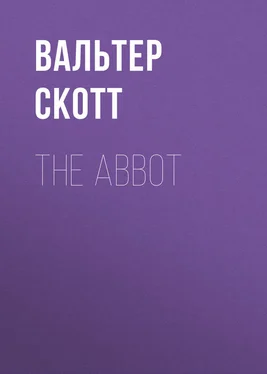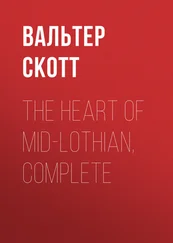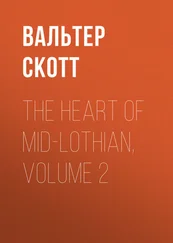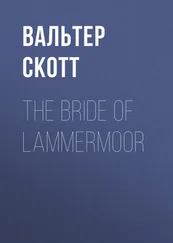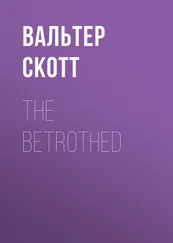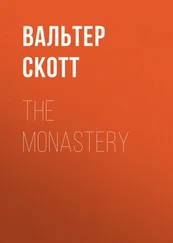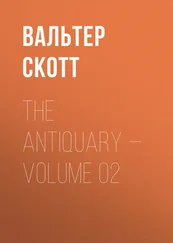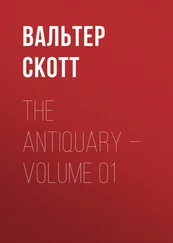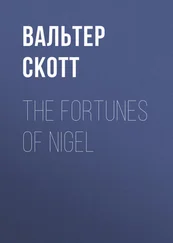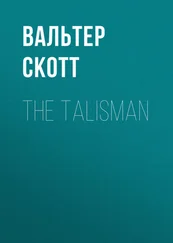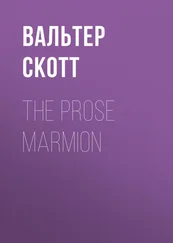Вальтер Скотт - The Abbot
Здесь есть возможность читать онлайн «Вальтер Скотт - The Abbot» — ознакомительный отрывок электронной книги совершенно бесплатно, а после прочтения отрывка купить полную версию. В некоторых случаях можно слушать аудио, скачать через торрент в формате fb2 и присутствует краткое содержание. Жанр: foreign_antique, foreign_prose, Альтернативная история, на английском языке. Описание произведения, (предисловие) а так же отзывы посетителей доступны на портале библиотеки ЛибКат.
- Название:The Abbot
- Автор:
- Жанр:
- Год:неизвестен
- ISBN:нет данных
- Рейтинг книги:4 / 5. Голосов: 1
-
Избранное:Добавить в избранное
- Отзывы:
-
Ваша оценка:
- 80
- 1
- 2
- 3
- 4
- 5
The Abbot: краткое содержание, описание и аннотация
Предлагаем к чтению аннотацию, описание, краткое содержание или предисловие (зависит от того, что написал сам автор книги «The Abbot»). Если вы не нашли необходимую информацию о книге — напишите в комментариях, мы постараемся отыскать её.
The Abbot — читать онлайн ознакомительный отрывок
Ниже представлен текст книги, разбитый по страницам. Система сохранения места последней прочитанной страницы, позволяет с удобством читать онлайн бесплатно книгу «The Abbot», без необходимости каждый раз заново искать на чём Вы остановились. Поставьте закладку, и сможете в любой момент перейти на страницу, на которой закончили чтение.
Интервал:
Закладка:
“Had we been blessed with children,” she was wont on such occasions to say to herself, “had our blood been united in a son who might have joined my advantages of descent with my husband’s personal worth, these painful and irksome reflections had not disturbed our union even for a moment. But the existence of such an heir, in whom our affections, as well as our pretensions, might have centred, has been denied to us.”
With such mutual feelings, it cannot be wondered that it gave the Lady pain to hear her husband verging towards this topic of mutual discontent. On the present, as on other similar occasions, she endeavoured to divert the knight’s thoughts from this painful channel.
“How can you,” she said, “suffer yourself to dwell upon things which profit nothing? Have you indeed no name to uphold? You, the good and the brave, the wise in council, and the strong in battle, have you not to support the reputation your own deeds have won, a reputation more honourable than mere ancestry can supply? Good men love and honour you, the wicked fear, and the turbulent obey you; and is it not necessary you should exert yourself to ensure the endurance of that love, that honour, and wholesome fear, and that necessary obedience?”
As she thus spoke, the eye of her husband caught from hers courage and comfort, and it lightened as he took her hand and replied, “It is most true, my Mary, and I deserve thy rebuke, who forget what I am, in repining because I am not what I cannot be. I am now what the most famed ancestors of those I envy were, the mean man raised into eminence by his own exertions; and sure it is a boast as honourable to have those capacities which are necessary to the foundation of a family, as to be descended from one who possessed them some centuries before. The Hay of Loncarty, who bequeathed his bloody yoke to his lineage, – the ‘dark gray man,’ who first founded the house of Douglas, had yet less of ancestry to boast than I have. For thou knowest, Mary, that my name derives itself from a line of ancient warriors, although my immediate forefathers preferred the humble station in which thou didst first find them; and war and counsel are not less proper to the house of Glendonwyne, even, in its most remote descendants, than to the proudest of their baronage.” [Footnote: This was a house of ancient descent and superior consequence, including persons who fought at Bannockburn and Otterburn, and closely connected by alliance and friendship with the great Earls of Douglas. The Knight in this story argues as most Scotsmen would do in his situation, for all of the same clan are popularly considered as descended from the same stock, and as having a right to the ancestral honor of the chief branch. This opinion, though sometimes ideal, is so strong even at this day of innovation, that it may be observed as a national difference between my countrymen and the English. If you ask an Englishman of good birth, whether a person of the same name be connected with him, he answers (if in dubio. ) “No – he is a mere namesake.” Ask a similar question of a Scot, (I mean a Scotsman,) he replies – “He is one of our clan; I daresay there is a relationship, though I do not know how distant.” The Englishman thinks of discountenancing a species of rivalry in society; the Scotsman’s answer is grounded on the ancient idea of strengthening the clan.]
He strode across the hall as he spoke; and the Lady smiled internally to observe how much his mind dwelt upon the prerogatives of birth, and endeavoured to establish his claims, however remote, to a share in them, at the very moment when he affected to hold them in contempt. It will easily be guessed, however, that she permitted no symptom to escape her that could show she was sensible of the weakness of her husband, a perspicacity which perhaps his proud spirit could not very easily have brooked.
As he returned from the extremity of the hall, to which he had stalked while in the act of vindicating the title of the house of Glendonwyne in its most remote branches to the full privileges of aristocracy, “Where,” he said, “is Wolf? I have not seen him since my return, and he was usually the first to welcome my home-coming.”
“Wolf,” said the Lady, with a slight degree of embarrassment, for which perhaps, she would have found it difficult to assign any reason even to herself, “Wolf is chained up for the present. He hath been surly to my page.”
“Wolf chained up – and Wolf surly to your page!” answered Sir Halbert Glendinning; “Wolf never was surly to any one; and the chain will either break his spirit or render him savage – So ho, there – set Wolf free directly.”
He was obeyed; and the huge dog rushed into the hall, disturbing, by his unwieldy and boisterous gambols, the whole economy of reels, rocks, and distaffs, with which the maidens of the household were employed when the arrival of their lord was a signal to them to withdraw, and extracting from Lilias, who was summoned to put them again in order, the natural observation, “That the Laird’s pet was as troublesome as the lady’s page.”
“And who is this page, Mary?” said the Knight, his attention again called to the subject by the observation of the waiting-woman, – “Who is this page, whom every one seems to weigh in the balance with my old friend and favourite, Wolf? – When did you aspire to the dignity of keeping a page, or who is the boy?”
“I trust, my Halbert,” said the Lady, not without a blush, “you will not think your wife entitled to less attendance than other ladies of her quality?”
“Nay, Dame Mary,” answered the Knight, “it is enough you desire such an attendant. – Yet I have never loved to nurse such useless menials – a lady’s page – it may well suit the proud English dames to have a slender youth to bear their trains from bower to hall, fan them when they slumber, and touch the lute for them when they please to listen; but our Scottish matrons were wont to be above such vanities, and our Scottish youth ought to be bred to the spear and the stirrup.”
“Nay, but, my husband,” said the Lady, “I did but jest when I called this boy my page; he is in sooth a little orphan whom we saved from perishing in the lake, and whom I have since kept in the castle out of charity. – Lilias, bring little Roland hither.”
Roland entered accordingly, and, flying to the Lady’s side, took hold of the plaits of her gown, and then turned round, and gazed with an attention not unmingled with fear, upon the stately form of the Knight. – “Roland,” said the Lady, “go kiss the hand of the noble Knight, and ask him to be thy protector.” – But Roland obeyed not, and, keeping his station, continued to gaze fixedly and timidly on Sir Halbert Glendinning. – “Go to the Knight, boy,” said the Lady; “what dost thou fear, child? Go, kiss Sir Halbert’s hand.”
“I will kiss no hand save yours, Lady,” answered the boy.
“Nay, but do as you are commanded, child,” replied the Lady. – “He is dashed by your presence,” she said, apologizing to her husband; “but is he not a handsome boy?”
“And so is Wolf,” said Sir Halbert, as he patted his huge four-footed favourite, “a handsome dog; but he has this double advantage over your new favourite, that he does what he is commanded, and hears not when he is praised.”
“Nay, now you are displeased with me,” replied the Lady; “and yet why should you be so? There is nothing wrong in relieving the distressed orphan, or in loving that which is in itself lovely and deserving of affection. But you have seen Mr. Warden at Edinburgh, and he has set you against the poor boy.”
“My dear Mary,” answered her husband, “Mr. Warden better knows his place than to presume to interfere either in your affairs or mine. I neither blame your relieving this boy, nor your kindness for him. But, I think, considering his birth and prospects, you ought not to treat him with injudicious fondness, which can only end in rendering him unfit for the humble situation to which Heaven has designed him.”
Читать дальшеИнтервал:
Закладка:
Похожие книги на «The Abbot»
Представляем Вашему вниманию похожие книги на «The Abbot» списком для выбора. Мы отобрали схожую по названию и смыслу литературу в надежде предоставить читателям больше вариантов отыскать новые, интересные, ещё непрочитанные произведения.
Обсуждение, отзывы о книге «The Abbot» и просто собственные мнения читателей. Оставьте ваши комментарии, напишите, что Вы думаете о произведении, его смысле или главных героях. Укажите что конкретно понравилось, а что нет, и почему Вы так считаете.
